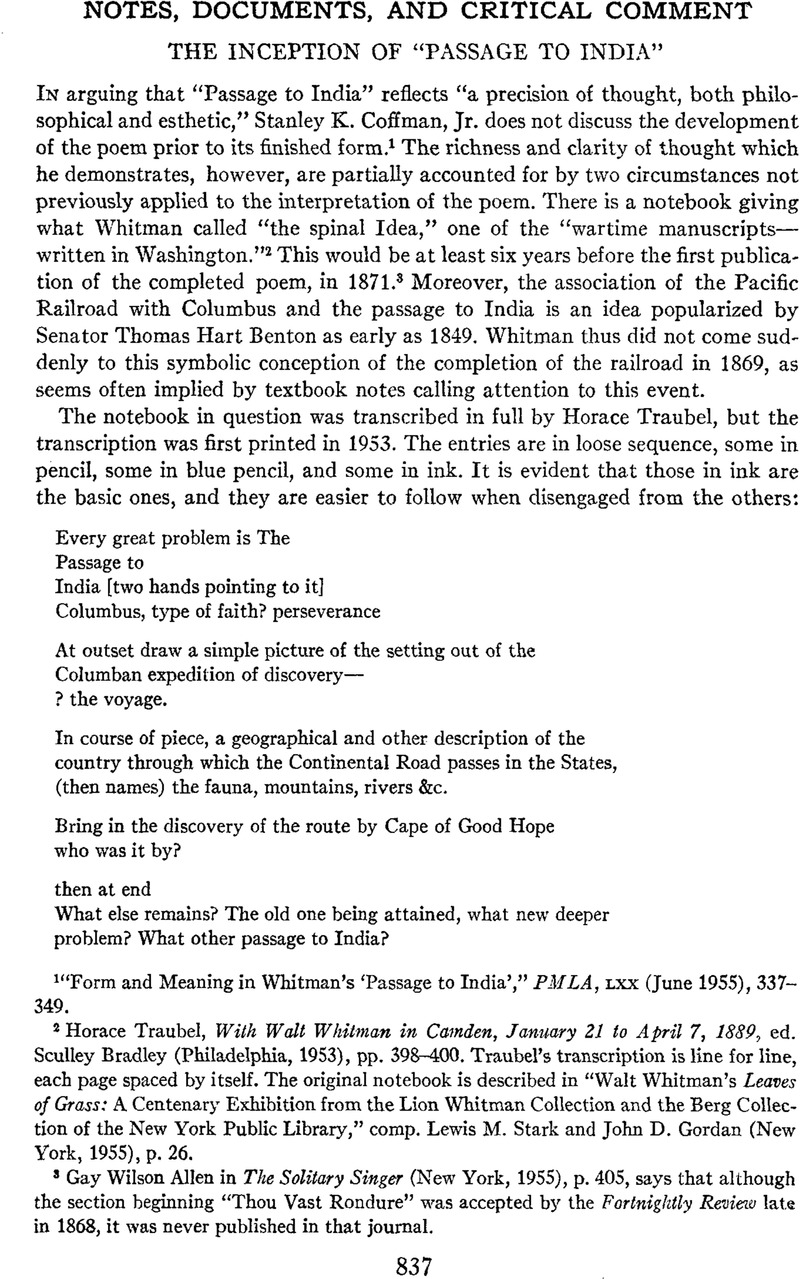No CrossRef data available.
Published online by Cambridge University Press: 02 December 2020

1 “Form and Meaning in Whitman's ‘Passage to India’,” PMLA, lxx (June 19S5), 337–349.
2 Horace Traubel, With Walt Whitman in Camden, January 21 to April 7, 1889, ed. Sculley Bradley (Philadelphia, 1953), pp. 398–400. Traubel's transcription is line for line, each page spaced by itself. The original notebook is described in “Walt Whitman's Leaves of Grass: A Centenary Exhibition from the Lion Whitman Collection and the Berg Collection of the New York Public Library,” comp. Lewis M. Stark and John D. Gordan (New York, 1955), p. 26.
3 Gay Wilson Allen in The Solitary Singer (New York, 1955), p. 405, says that although the section beginning “Thou Vast Rondure” was accepted by the Fortnightly Review late in 1868, it was never published in that journal.
4 In Two Rivulets (Camden, N. J., 1876), pp. 21–23, a poem entitled “Prayer of Columbus” describes the desperate plight of Columbus in Jamaica in 1503. This poem first appeared in Harper's, xxviii (March 1874), 524–525.1 am indebted to Professor Gay Wilson Allen for drawing it to my attention. “Prayer of Columbus” may be regarded as an “overflow” from “Passage to India.” In another of Whitman's poems, “As Adam Early in the Morning” (1860), there is an incidental anticipation of the “Passage to India” theme.
5 Edwin L. Sabin, Building the Union Pacific Railway (Philadelphia, 1919), pp. 28, 38 63, 94, 96.
6 William M. Meigs, The Life of Thomas Hart Benton (Philadelphia and London, 1904), p. 422. Quoted in substance by Sabin, p. 19. Henry Nash Smith in Virgin Land (Cambridge, 1950), pp. 23–24, though he does not cite this 1849 speech by Benton, traces the idea in his political thought as far back as 1818—a year before Whitman was born.